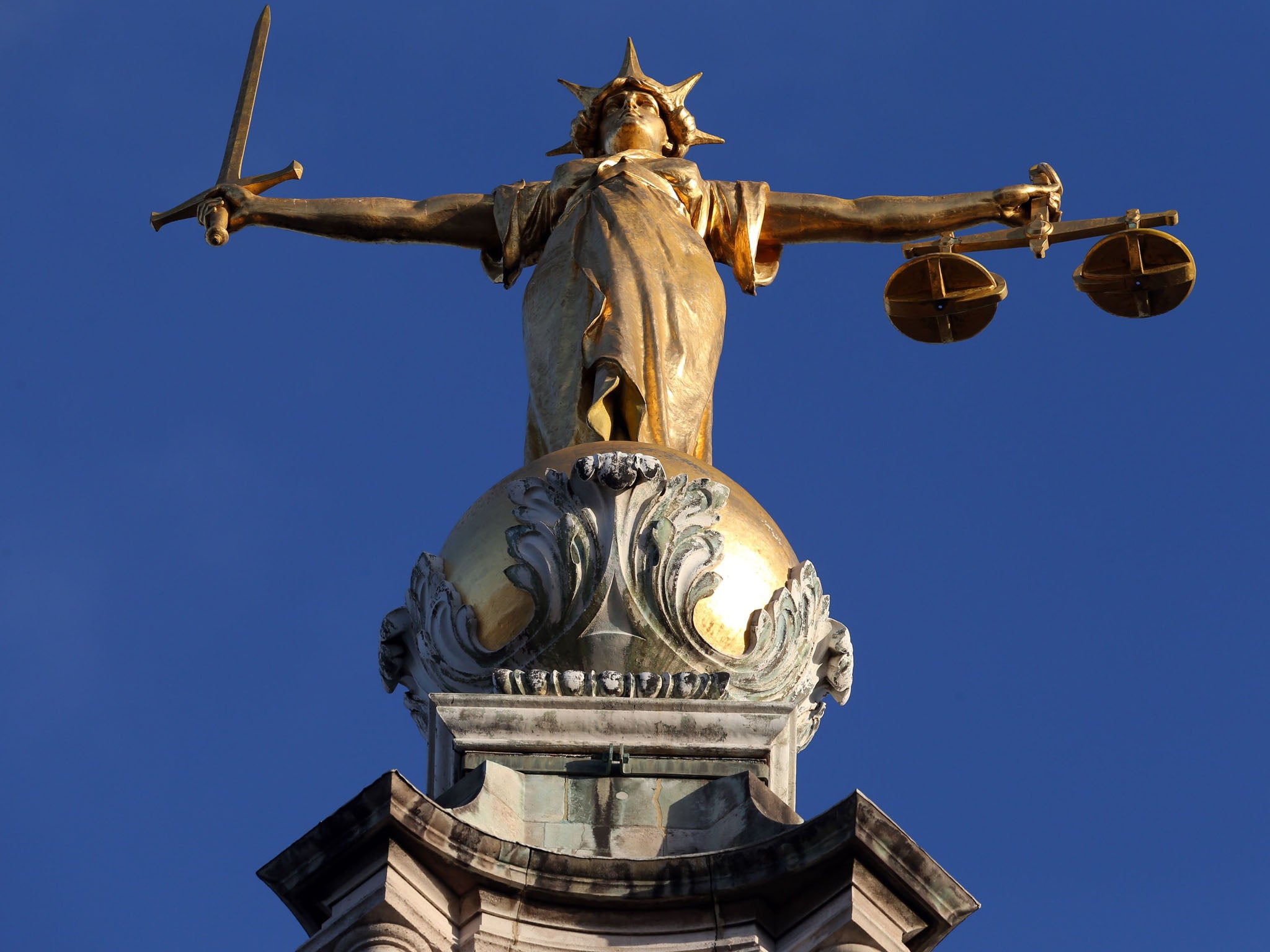‘The British public are at risk’: Court trials hit record low in England and Wales as government warned ‘criminals free to walk streets’
Number of magistrates’ trials has fallen by a third in the past 10 years amid court closures and budget cuts

The number of trials being held in England and Wales has plummeted to a record low as police solve fewer crimes, new figures show.
Magistrates’ court trials have fallen by a third since current recording started in 2003, while the figure for crown courts is down by 18 per cent.
In real terms, almost 67,000 fewer criminal trials were held in 2018 than in 2008, prompting warnings that “criminals are free to walk the streets”.
The latest figures released by the Ministry of Justice come after separate statistics showed the number of crimes being prosecuted has also fallen to a record low, as has the number of people punished.
Only 7.8 per cent of crimes reported to police a suspect charged or summonsed in 2018-19, and for rape the figure was just 1.5 per cent.
Legal campaigners have hit out at cuts made across the criminal justice system since 2010, saying a collapse in the number of crimes solved by police has had a knock-on effect.
Simon Davis, president of the Law Society of England and Wales, said the statistics came as no surprise because the system was at “breaking point”.
“It simply does not have the resources to function effectively,” he added.
“The future integrity of our justice system depends on the whole system working effectively and efficiently. This means we need additional funding across the board: for police and prosecutors, but also for courts and the defence.”
Boris Johnson has vowed to recruit 20,000 police officers but there are questions about how the Crown Prosecution Service (CPS) and court system will handle increased cases after years of cuts.
Since 2010, 295 court facilities have been shot down, including half of magistrates’ courts (162), 90 county courts, 18 tribunal buildings, 17 family courts and eight crown courts.
Richard Atkins QC, chair of the Bar Council, said: “While parliament is squabbling over Brexit, criminals are free to walk the streets as the justice system begins to grind to a halt, leaving the British public at risk.
“These latest Ministry of Justice statistics must be ringing alarm bells at the Treasury and Downing Street.
“Criminal justice needs more than simply boosting police ranks. It needs investment in the entire system.”
The number of days on which the remaining courts sit have also been cut by almost 15 per cent in a year, leaving many sitting empty despite a backlog of cases waiting to be heard.
Caroline Goodwin QC, chair of the Criminal Bar Association, called for an end to the “draconian” cuts and hit out at the 32,708 outstanding cases.
“Substantial investment is needed to tackle court closures, falling prosecutions and the rise in violent crime,” she told Press Association.
“The public has a right to feel miserably short-changed. Not about Brexit, but about our justice system.
“Those in charge of this farce should look at the devastating consequences that are easily quantifiable including; victims waiting longer, expectation of early trial dates as promised dashed, witnesses who have arranged days away from work inconvenienced.
“Justice delayed is justice denied. The system is not reacting at all, never mind faster and for what exactly.”
The Ministry of Justice said its figures showed the number of outstanding cases “falling consistently” over four years, and waiting times going down in crown courts.
Separate figures released on Thursday showed that expenditure on legal aid has fallen by 15 per cent in a year in crown courts and 7 per cent in magistrates’ courts.
Barristers have gone on strike over changes to how the money – intended to fund legal advice, mediation and representation for those who cannot afford it – is awarded following the introduction of a new system last year.
The legal aid system was heavily criticised following the London Bridge terror attack inquests, where the ringleader’s widow was given financial support for legal representation but legal aid was refused to the victims’ families.
On Thursday, freedom of information requests by The Times revealed that the Metropolitan Police, London Ambulance Service, City of London Corporation and other public authorities had spent almost £800,000 of taxpayers’ money on their own lawyers.
A Ministry of Justice spokesperson said: “The drop in the number of trials simply reflects that there has been a fall in the number of crown court prosecutions – any claim to the contrary is misleading.
“The number of outstanding crown court cases has fallen by over 40 per cent in the last five years, demonstrating that the system is working effectively and efficiently.
“The Ministry of Justice budget will increase by 5 per cent in real terms next year and the CPS is receiving an extra £85m to ensure the criminal justice system can support the work of the 20,000 extra police officers we are recruiting to tackle crime.”
Subscribe to Independent Premium to bookmark this article
Want to bookmark your favourite articles and stories to read or reference later? Start your Independent Premium subscription today.
